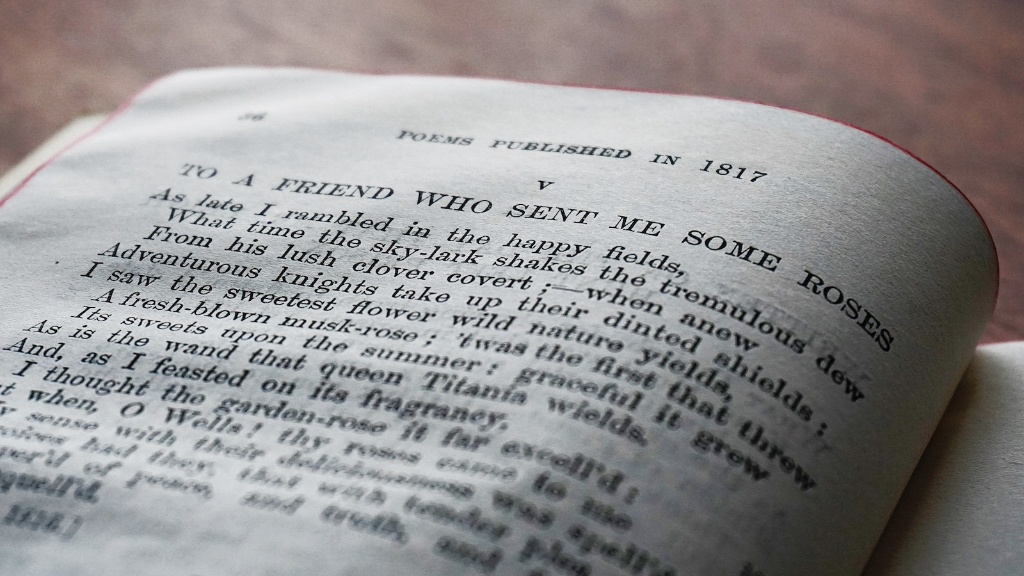Rise and Fame of Langston Hughes
Langston Hughes was an influential African American poet who accompanied the Harlem Renaissance of the 1920s and 1930s, and addresses issues of racism. He was an inspired writer and a great orator, who stirred people’s spirit at the time. Hughes was an avid reader of literature, a passionate writer and a powerful thinker, who opened new doors for generations of African Americans to follow.
He showed the people of his time that Black people weren’t less than anyone else and that their work was just as important and commendable. His extraordinary talent and dedication to write epic poetry and powerful stories opened the way for Black writers’ fame and made him a renowned poet. The success of his stories inspired aspiring writers around the country. Hughes wrote about the everyday lives of African Americans in a way that was affirmative and powerful. His writing, unlike what most black writers did, was not limited to stories of sadness and despair, he focused on the struggles of the African American community and the joy and beauty of life in general.
His works were a call to action and they made African Americans begin to celebrate their culture. He actively shared his works in a variety of publications and publications from across the United States and around the world and through that, he brought his work to the attention of a wider audience. He was a major force behind the Harlem Renaissance, which was a time of enlightenment for all things Black, from literature to art to music. The legacy he left is reflected in the works of today’s black writers, who continue to use his writings as a source of inspiration.
Langston Hughes’s Impact on the World
One of Langston Hughes’s most ingrained legacies has to do with the role that he played in inspiring the African American community to resist oppression and racism through the power of his words. His works featured powerful rhetoric that spoke to the African American experience. His works pushed readers to think critically about the state of the community and imagine everybody’s possibilities. Hughes’s works gave courage and strength to African Americans during a time of direct oppression, when many African Americans felt powerless in a white-dominated society.
A lot of Hughes’s work focused on black culture and the celebration of it. He pushed for a greater appreciation of the black culture, instead of being ashamed of it. Therefore, he was a major figure in the introduction of the Harlem Renaissance. He was one of the voices in the movement that urged to not just paint the picture of racial struggles but also the joy and black beauty that should be celebrated. Through Hughes’s work, African Americans of the time found the confidence to stand up against white supremacy and show pride.
Moreover, Hughes’s work also helped sensitize people in other countries to the discrimination and racism that African Americans faced. Hughes addressed a variety of topics, including racial discrimination, interracial relationships, and social injustice. His works were read in publications across the United States, as well as in Europe and Asia, giving them a global reach. Therefore, Hughes’s work opened the eyes of people in other countries to the current situation in America.
Langston Hughes’s Lasting Legacy
Langston Hughes left behind a legacy in many forms. He was a pioneer in the Harlem Renaissance, a movement that marked the beginning of a cultural awakening amongst Black communities. He created unapologetically black works of literature that have been spread around the world, inspiring generations of writers. He was also a strong advocate for black empowerment, encouraging African Americans to stand up for themselves and embrace their identities.
In the world of literature, Hughes pushed forward the rise of African American authors. He created a space for black people to tell their stories through his works. His work sowed the seeds of the subsequent diversification of American literature. Many contemporary Black authors look to his influence, in some form or another, when they create their own works. To this day, his writing still reaches people and makes an impact.
Outside of literature, Hughes’s legacy lives on in other ways. His words in “A Dream Deferred” are embedded in US culture, encouraging people to keep striving towards their goals, despite any setbacks they may face. His writing of “Let America Be America Again” has been adopted by many protesters, at the forefront of inspiring change. Thus, Hughes’s work continues to have an impact and is still relevant today.
Langston Hughes In The Social Movement
The poet has been an integral part of the social movement for equality in the USA. The blacks have been discriminated for years, and the situation was very much visible during the time of Langston Hughes. He stood for their rights and penned a lot of works that depicted the situation of black lives and their demand for justice. His “A Dream Deferred” and “Let America Be America Again” have been some of the famous pieces of literature that have been celebrated as seeking justice for all.
He spoke out against white supremacy and encouraged all African Americans to stand up for their rights and to embrace their culture. He was a loud voice that led the celebration of African American culture, through music and literature, while inspiring the people to fight against oppression and racism. His poetry, full of irony and sarcasm, is still used to inspire African Americans struggling to overcome harsh realities.
Hughes was also a key figure in the moving protests in the US civil rights movement and his works were printed in newspapers and books that served as an essential tool for the activists of the time. His famous works, such as “Harlem” and “I, Too” have been recited by many of the movement’s keynote speakers in front of large crowds. Therefore, it is clear that Langston Hughes profoundly influenced the history of the United States and its civil rights movement.
Contribution of Langston Hughes To Education
Langston Hughes was not just a renowned author, he was also a strong advocate for education. In his own life, he received education for the whole of his life and he was influenced by various intellectual sources. He then dedicated his life to reach out to minority youths and promote learning and education. He taught in several black schools and gave numerous speeches. He worked hard to make the African American education and culture more accessible to the larger public.
Consequently, he became an influential advocate for education. He wrote books and poetry on education, such as “My People”, a collection of poems about Africa, and “The Negro Speaks of Rivers ” which reflected Hughes’ commitment to black education. His works have been included in various curriculums around the country and even in other countries. This is because his works emphasized the importance of education, and it is still relevant today.
Hughes also believed that all people had the right to education. He wanted African Americans to pursue their dreams with the proper education and to enter many of the former occupations and careers that were believed to be unreachable for African Americans. Hughes worked hard to promote education of African Americans and to show them that they can be successful in any field that they pursued.
Conclusion of Langston Hughes’s Impact
Langston Hughes was a trailblazing poet and storyteller who played an integral role in the 20th century civil rights movement. He left behind a rich cultural legacy, inspiring generations of writers, activists, and educational institutions. His works addressed the plight of African Americans during a time of great oppression and his powerful words urged them to stand up for their rights, and ultimately, helped them to make progress.
Moreover, Hughes also contributed to the field of education. He was highly committed to African American education and believed that all people had the right to it. He was a major proponent of black pride and the celebration of the African American culture, ensuring that their struggles were heard and understood. He was a major force in the Harlem Renaissance, providing a new platform for African American art, literature, and music.
In conclusion, Langston Hughes’s influence on society should not go unnoticed. He inspired with his writing, shined a spotlight on African American pride, and fought for civil rights. His legacy continues to live on, with his works still being read, and his rich cultural legacy still being felt today.




